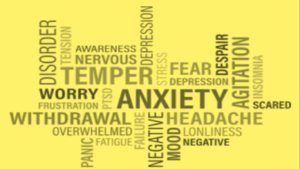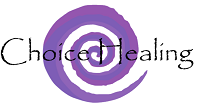Hi all! The style of Reiki I practice is Usui Reiki, which has become the predominant form or style of Reiki practiced throughout the world and is named after its’ creator Mikao Usui who rediscovered Reiki in 1922 and went on to refine the Usui style. After Usuis’ death in 1926 a memorial stone was erected in 1927 in Tokyo in memory of him upon which is an inscription that has formed the basis of much of the understanding of who Miao Usui was and the history of Usui Reiki. This inscription also makes reference to a series of guidelines formulated by the Meiji Emperor of Japan, which when followed would lead to a more fulfilled life. These guidelines, also known as the 5 Reiki Precepts were adopted by Usui and to this day are seen as suitable guidelines by most Reiki practitioners to how best to live in the now, to not remain a prisoner of the past nor spoil the experience of now by living in the future and also to live your life with integrity that recognises the divinity in everything and in every person. These guidelines mirror various other common sets of ethical precepts that everyone can live by to promote a healthy, loving way of living. These are:
Just for today, I will not worry
Just for today, I will not be angry
Just for today, I will be grateful
Just for today, I will do my work honestly
Just for today, I will be kind to every living thing
It may seem a bit overwhelming to change ourselves in order to live by all five of these principles immediately and every single day, however what I’d like to do in this first of a series of posts is to expand on the Reiki Principles a little so you can begin to align with their relevance in todays’ world and see how and where they can be applied in your life, maybe even start today by focussing your awareness on just one. Before we look a bit deeper at these, in this this post I would like to start by expanding and exploring a definition of something that impacts them all as it is one of the biggest issues facing modern society, preventing people from functioning at their best and that is – stress:
Stress
It’s common these days to use the term “stress” to describe negative situations, which leads many people to believe that all stress is bad for you, which is not true. Stress is just the body’s response to changes that create taxing demands but there is a difference between eustress (positive stress) and distress (negative stress)
Eustress
Eustress, or positive stress, or beneficial stress (whether psychological, physical, or biochemical) is any kind of stress that is experienced as positive or that promotes well-being. This can be characterised as that which motivates, focuses energy, is short-term and perceived to be within our coping abilities. It feels exciting and improves performance. Examples of positive personal stressors include:
• Getting a promotion or raise at work
• Starting a new job
• Marriage
• Buying a home
• Having a child
• Moving house
• Taking a holiday
• Holiday seasons like Christmas
• Retiring
• Taking courses, classes or learning a new hobby
Distress
In contrast, distress, or negative stress, can be characterised as that which causes anxiety or concern, can be short- or long-term and perceived as outside of our coping abilities. It feels unpleasant, decreases performance and can lead to mental and physical problems. Examples of negative personal stressors include:
Examples of negative personal stressors include:
• The death of a partner
• Separation from a partner or divorce
• Losing contact with loved ones
• The death of a family member
• Hospitalisation (you or family)
• Injury or illness (you or family)
• Being abused or neglected
• Separation from a partner
• Conflict in interpersonal relationships
• Money Problems
• Unemployment
• Sleep problems
• Children’s problems at school
• Legal problems
• Excessive job demands
• Job insecurity
• Conflicts with teammates and supervisors
• Making presentations in front of colleagues or clients
• Commuting and travel schedules
Also, stressors may not always be limited to situations outside of ourselves, our own thoughts and feelings and habitual behaviours can also cause distress such as fears and phobias, limited and repetitive thinking patterns, worrying about the future, unrealistic or perfectionist expectations and procrastination. How we experience stress is very subjective and personal to each person and it is how we respond to stress that determines whether we profit from misfortune or be miserable, however, awareness of this can enable us to begin the task of choosing our response to this rather than just automatically reacting to it. Going forward in this series of posts, my reference to stress will mean distress and not eustress.
In the next post, let’s take a quick exploration of our first guideline – Just for today, I will not worry.
Thanks for reading, I hope some of this resonates with you and you find it useful. Receiving a reiki treatment and learning and practicing reiki can have a hugely positive impact on stress in all of its guises. To book a treatment click here. To learn reiki, click here.
With love and light
John

